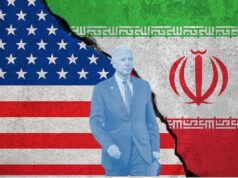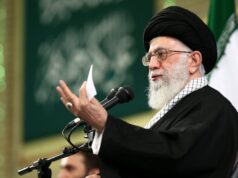As the White House keeps a close eye on the unfolding events in the Middle East from Egypt to Syria and Iran, the Washington Post released a report today stating that Pakistan, one of the most volatile countries in an already unstable region, has doubled its nuclear stockpile over the last several years so that its arsenal now totals more than 100 deployed weapons. Four years ago, the Pakistani arsenal was estimated at 30 to 60 weapons.
While both the U.S. and Britain have said they are satisfied with Pakistan’s security measures for its nuclear weapons, a report published last April by Harvard University’s Belfer Centre for Science and International Affairs, titled Securing the Bomb 2010, warned of “a very real possibility” that Pakistan’s warheads could be stolen by terrorists. Pakistan’s stockpile “faces a greater threat from Islamic extremists seeking nuclear weapons than any other nuclear stockpile on earth,” it stated.

Pakistan’s newest missile, the Shaheen II, has a range of 1,500 miles and is about to go into operational deployment. |
|
Washington has a very tenuous relationship with Islamabad, to which it gives over $1 billion annually. Although, since 9/11, Pakistan has cooperated with the U.S. in defusing or investigating terrorism plots launched from its soil, it has also allowed al-Qaeda militants and members of the Afghan Taliban to seek refuge in its lawless Federally Administered Tribal Areas (FATA) and parts of the North West Frontier Province. Moreover, according to Wikileaked reports, Islamabad has diverted U.S. funds intended to fight terrorism over the years, and members of Pakistan’s spy service, the Directorate for Inter-Services Intelligence (ISI) are connected with the Afghan Taliban.
With uprisings reverberating throughout the Middle East, Pakistan’s nuclear revelations should remind the U.S. of the dangers posed by political upheaval in the wider region.





